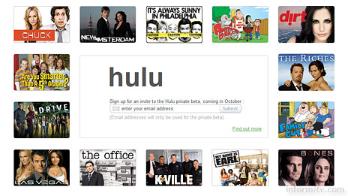Hulu, CBS, Disney and New Models for Video Distribution

Jack MyersThink Tank
Patrick Keane, Chief Marketing Officer for CBS Interactive, had his "coming out" party earlier this week at the Jack Myers"Breakfast at Michael's" event, having only spoken in public as a CBS executive at the TCA in July. As a senior Google executive, Keane had the responsibility for justifying Google's acquisition of YouTube and its inherent conflict with broadcast network and studio distribution and revenue models. At CBS, Keane and CBS Interactive president Quincy Smith have embraced the open distribution model, partnering with multiple video distribution platforms that have a revenue model in place.
CBS is digitizing its vast library of entertainment and news content and Keane believes the NBC/News Corp. Hulu model of "creating a new destination isn't practical. If the economics make sense and we can learn about the users through data and analytics, we can play with anyone. In an old guard company," Keane acknowledged, "there is too much of a perception of competition and a sense of one winner. I'm not worried about NBC and Fox. There are millions of sites today that are competitive and I want to get our content in front of more users. Distribution could become infinite and the issue is how to bring content under control in this world of consumer choice." When it comes to consumer generated content, CBS, like almost everyone else, is also wondering "what is the mechanism for advertising to touch consumers? How do you do it elegantly with true customization, integration and accountability for advertisers," he points out. "I would love to have answers in six to 12 months," he says.
Keane appeared on a Myers panel with Steve Mitgang, president of video platform Veoh Networks; Spencer Wang of Bear Stearns; and Andy Nobbs of video watermarking company Teletrax.
Nobbs suggests "many network and studio people still have a 'deer in the headlights' look and are mindful of not doing wrong thing, But," he adds, "the specter of the music business problems affecting the video business looms less today and is receding as a bad dream. The video industry is trying to do different things."
Mitgang points out "there is a spectrum of ways companies are thinking about how to deal with copy righted material. We know the world is changing and companies need to ask themselves if they are the type of company that is willing to try and make progress. Some view the world as black and white, and want copyrighted materials handled the way they want. Most companies are trying to make an effort to explore new models for major deals and commercial agreements. The good thing is, for the most part, they want to learn and experiment rather than take cover and put up steel walls to protect themselves. The more you have been experimenting," he believes, "the more you know you need to embrace the power of the audience and their ability to find content on their own. When it comes to entertainment and programming there are risks if you go too traditional; you may build models that are too derivative of the past."
"From a programming perspective," Mitgang says, "studios need to figure out to get materials out in front of audiences and let audiences digest it in whatever way they want. This isn't easy."
Commenting on Hulu, Mitgang suggests "NBC and News Corp are just not comfortable taking a large step, and the movie studios also have a tough time. The real issue is it won't do well if there are constraints around the consumer experience. If Veoh [and other distribution players] go away, the problem of distribution hasn't been solved. Consumers will go to 100 other places to post content and to find it. They will find other ways to satisfy their desire to find the content."
Mitgang, like Keane, believes "it would be a mistake to apply the TV model of advertising. We are about to finally see creative groups in traditional ad agencies reassert themselves in the interactive media dialogue and have a voice. Clients are figuring out that brand interaction in video unlocks tremendous creativity and that will be really exciting. When you put video and interactive together and you unleash interesting ways for brands to engage in model, what can happen," he asks.
As for the future, Mitgang admits "most service providers like portals and distribution/content holders are thinking short term. When we look at the next 24-months, consumption patterns in video will radically change. There will be large audiences and video will be more methodically programmed and consumed. There will be longer format video. How does that change the options around programming and underlying systems architecture? How does it change the user experience and hard drive management? When you're watching a couple of 40 minute clips across multiple shows per week, what happens? We need to think about the implications to technology."
The holy grail, as programming and technology intersect in a world of a billion videos, will be to help consumers find the gems they are most interested in. "We're working on this from a technical point-of-view," says Mtigang. "How do you find and get consumers to find great content, and attach advertisers to the results?"
Wang agrees "the problem with a massive increase in choice is confusion. It's overwhelming. The companies that can connect individuals to their specific interests is the big winner, not the person who makes the movie or the clip, because there will be so much content it won't be scalable. Traditional entertainment companies have a challenge. "How do content producers like Disney and distributors like Comcast capitalize on the trend? How do companies in the middle, like YouTube, MySpace and Veoh capitalize?"
Wang suggests users don't want multiple versions of same content scattered across the web. "One watermarked copy fully and freely distributed across the Internet is the best model and as long as you can monetize, you might as well distribute it widely."


